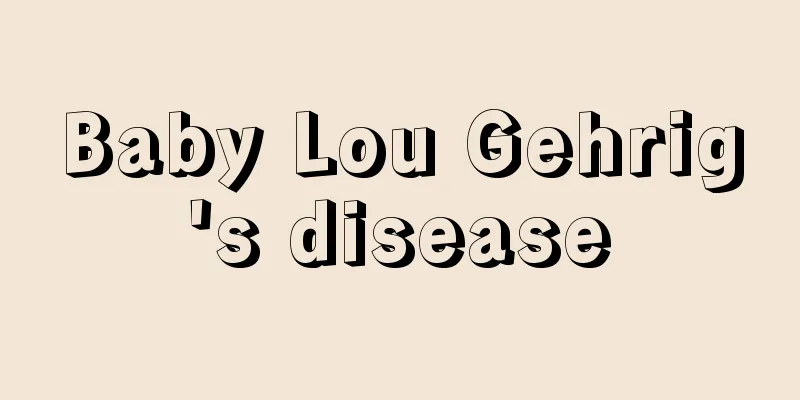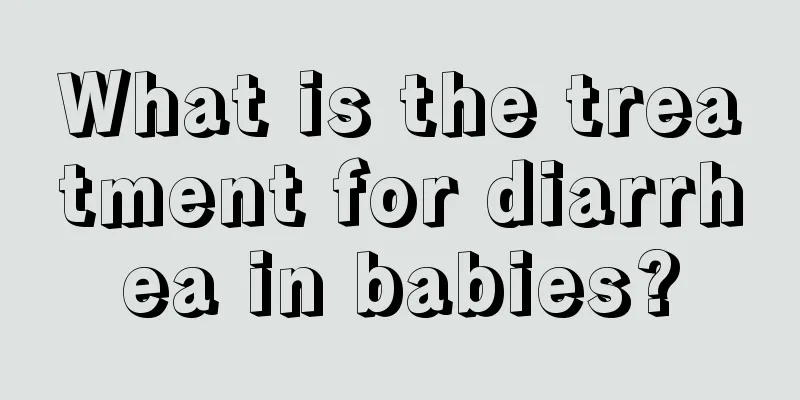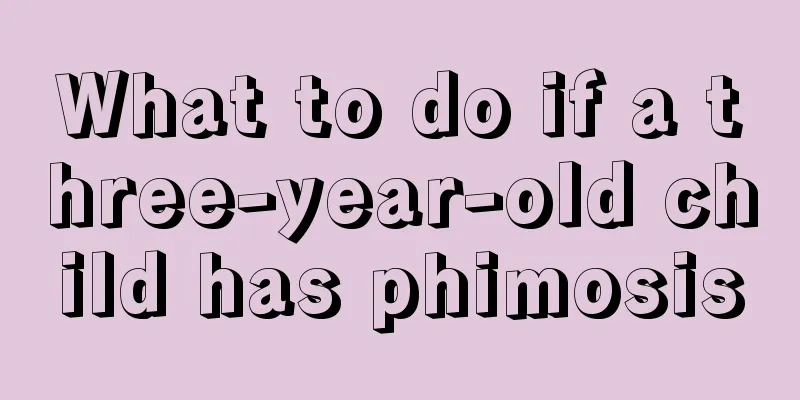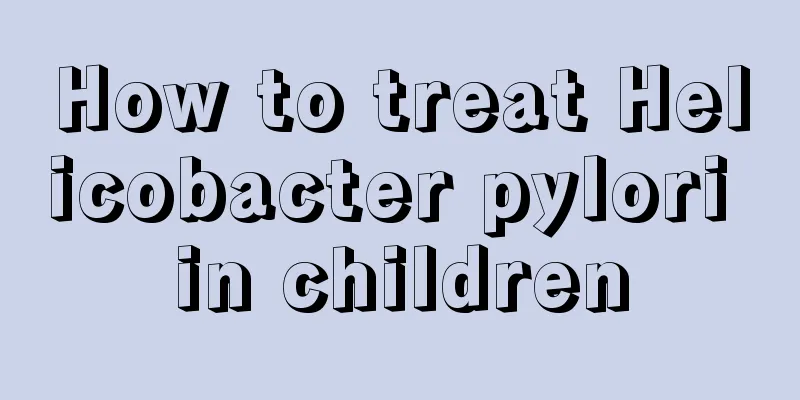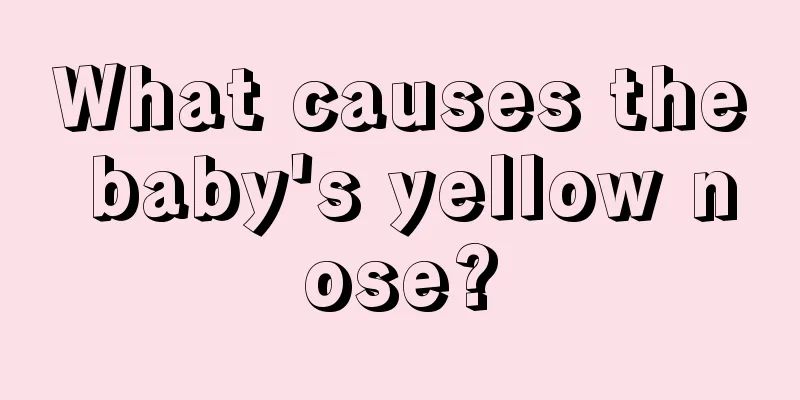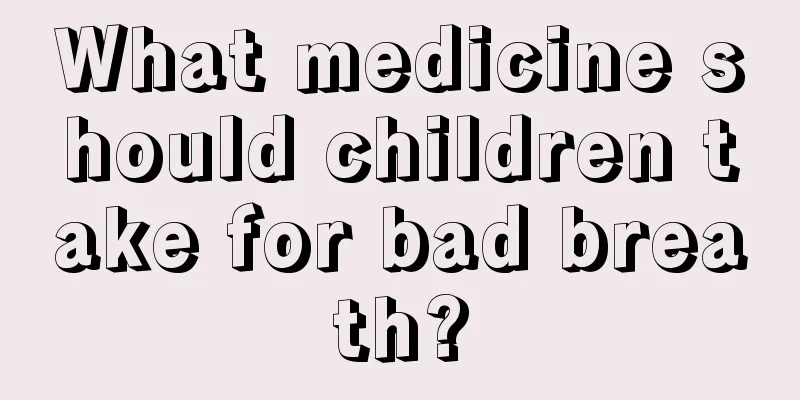Why does the baby hiccup when laughing?

|
For little babies, they are curious about everything in the outside world, and they are very happy every day. Even if their mother teases them a little, they will laugh out loud. Some parents find that their babies will hiccup immediately after laughing, no matter what time it is, so they are quite worried about this situation. So, why do babies hiccup when they laugh? Babies hiccup when they laugh because their respiratory systems are not yet perfect. Laughing can sometimes cause respiratory spasms, and in severe cases, they can't breathe. So when teasing your baby, know when to stop, and don't let him laugh if he hiccups. It will get better as he gets older. The phrenic nerve system of young babies is not yet fully developed, and they are prone to hiccups when stimulated. Frequent hiccups in children are a sign of diaphragm spasm, which can be caused by eating or drinking too quickly, cold food, and swallowing of air into the stomach. When this happens, drink some hot water. Do not exercise immediately after eating. Some babies will hiccup from time to time, and some will even hiccup in their mother's belly. Hiccups are caused by spasms in the diaphragm, the cup-like muscle that surrounds the stomach and lungs. As the stomach expands, it causes the diaphragm to spasm, thus causing the baby to hiccup. During feeding, babies may hiccup due to overfeeding or inhalation of air. The following are specific preventive measures: Hiccups due to overfeeding A baby's stomach is about the size of their fist, and a good way to tell if they're overfeeding is to measure the amount of milk you typically give them by holding their little fist against the bottle. You will be able to notice immediately if you are overfeeding. Try to have your baby eat small, frequent meals. To prevent your baby from eating too fast, you should change your baby's position every 20ml, or burp him, or let him relax and take a rest. Wait until the hiccups stop before continuing to feed your baby. If the hiccups don't stop after 5-10 minutes, giving your baby a few sips of water may stop the hiccups. This is especially important if your baby swallows large gulps. If your baby burps often, feed him before he's very hungry or when he's quiet. This will reduce the chance of burping during feedings. Hiccups due to inhaled air During feeding, make sure your baby's lips are at the widest part of the nipple, not the tip, so that there is a good seal between your baby's lips and the bottle. Also, tilt the bottle at a 45-degree angle to allow the bubbles to flow to the bottom of the bottle. Keep your baby upright for at least half an hour after feeding to allow air to escape from the stomach. Also, burp the baby during and after each feeding. If the above measures do not stop your baby's hiccups, there are two more possibilities to consider. That is, allergy to milk powder and gastroesophageal reflux. Symptoms of milk powder allergy include edema, abdominal pain, diarrhea and facial rash. Gastroesophageal reflux occurs when the tube connecting the stomach and esophagus does not work properly. If your baby regurgitates a large amount of milk after each feeding, or has abdominal pain after feeding and wakes up in the middle of the night due to pain, you should consider whether it is caused by gastroesophageal reflux. For this reason, holding your baby upright can alleviate the above symptoms. If you suspect reflux is a factor, try reducing the amount of milk you give and keeping your baby upright and quiet after each feeding. Because strenuous activity after feeding can aggravate reflux. If the condition worsens, consult your pediatrician. |
<<: Why does my baby always hiccup at night?
>>: What should I do if my child keeps hiccuping?
Recommend
Why can't babies sleep well at night?
Babies should normally get enough sleep, sleeping...
Is it a calcium deficiency if a child sweats on his head while sleeping?
Many parents will say that their babies often swe...
What happens if a child has multiple swollen lymph nodes in the abdominal cavity?
Lymph nodes are organs distributed throughout the...
When is the nap time for a three year old baby?
Many mothers hope that their children can get eno...
Teething order for children
When the baby reaches a certain age, you need to ...
What to do if your child's new teeth become loose
Children's growth is the most important thing...
Treatment for newborns who suddenly refuse to breastfeed
Many of our newborns suddenly stop eating milk. T...
Introduction to Neonatal Myocardial Damage
Many of our friends often don’t realize in life t...
Sternocleidomastoid torticollis
What people pay most attention to nowadays is hea...
Do children with calcium deficiency need to take calcium tablets?
During the infant and toddler period, if there is...
Why does my child's back itch all the time?
When parents are taking care of their children, t...
What to do if your child has heavy teeth
Children will start to change their teeth when th...
What to do if your child has a fever and refuses to take medicine
Babies always have a poor appetite and refuse to ...
Is ischemia and hypoxia common in newborns?
We all know that when a newborn is born, the hosp...
What are the causes of deformities in children?
Every mother wants to give birth to a healthy bab...

